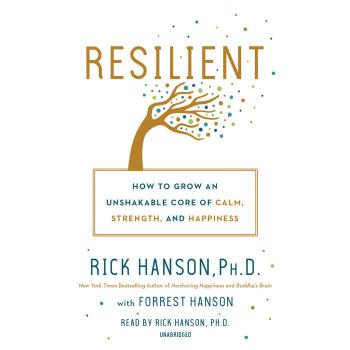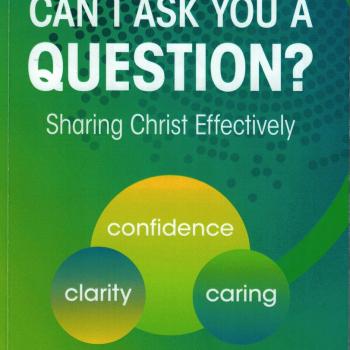
The book is a list of twelve confessions in which Michael Camp reflect on his faith and challenges and in some cases changes his fundamentalist evangelical roots. He uses the conversation with his friends as the basis for his confessions. In each such confession, he is challenged and then responds with what he has learned or re-learned.
Camp spends time recalling his journey in the Christian faith. From his beginnings as a fundamentalist Evangelical Christian, he explores faith in different ways. His journey takes him on a faith journey which allows him to expand his understanding of the Christian faith.
One of the surprising insights that I notice in books like these, is that the person always goes from a conservative fundamentalist position and moves out from there. It is not so much that the person who explores the Christian faith becomes more liberal, or less orthodox (although that does happen). Instead, a story like this seems to end up with the individual becoming open to more correct theology as well as incorrect theology.
In this case, his journey takes him to the point of exploring missions, even if it is based on “social justice” like World Vision (49). His desire to show love in action, as he points out, does not necessarily have to be at the expense of evangelism (49). On one extreme, you can use love in action as a manipulative tool to a desired end (salvation of the soul, and entrance to a particular church).
His discussion of the “missionary syndrome” as he calls it, is very interesting. He recalls his time in Somalia when he tried to share the Gospel with Muslims. At some point, he realized that not everyone could become a Christian. So he came to the conclusion that people come to Christ based on what they understand about Christ. Taking Romans 2:14-15, he believes that people are responsible for what they know about Christ (54-60). Camp comes to the conclusion that God saves some people outside the church who demonstrate faith and love as best they can given the knowledge they have (61). In essence, he borders on a form of universalism..
He struggles with the inerrancy of the Bible. He spent time at L’Abri to find the answers. (70-80). He shares the questioning of the evangelical position. He explores the idea of “churchanity” (a phrase which suggests that people are expected to conform to the traditions of a particular church, even if it is not expressed in the Bible) (104).
Camp questions the missionary practice of Westerners planting churches in Africa, and expecting them to self-propagating, self-governing, self-supporting, and self-replicating. He wonders how that can happen if we as Westerners expect Africans to maintain a Western model of church (church buildings and church programs). In order to do so, Westerners would have to subsidize the costs (106).
Camp begins to envision and decide on a form of Progressive Christianity (120). This includes creation care, eradicating slavery, fighting sex trafficking, mentoring troubled youth. Interestingly, many evangelical churches have now decided to promote these ideas in order that they don’t become labeled a fundamentalist church which is viewed in a negative light because they only cares about other social issues (abortion, homosexuality, alcohol and tobacco).
During his sixth confession (aborting political faith), Camp boils down this distaste for evangelical political thought because it forms an us-versus-them idea. As Camp recalls his experience with Randall Terry and Operation Rescue, the Four Horsemen of the Fundamentalist Apocalypse (Robertson, Dobson, Kennedy, Falwell) make an appearance. They are referred throughout the book in a negative light.
In his seventh confession (confronting Bible abuse), Camp comes to adopt the Preterist view of Eschatology (145) based on the teachings of R.C. Sproul. He insists that most evangelicals use a form of bibliolatry, where we worship the Bible which should be read literally, without thinking through all of the issues objectively (148).
He argues that the Bible is abused by fundamentalist evangelical Christians for various reasons (151). Camp claims that Bible passages are misinterpreted. He states that Christian leaders have misused it claim to authority. He also questions the authority of the Bible by questioning its reliability on points. His states that Christian American Revolutionists would not have broken from England because they were to uphold Romans 13 is one such misleading example. The reviewer would note that Revelation 13 reveals a very oppressive government which must be opposed by Christians (156-157).
He continues by stating the ways people abuse the Bible: (1) controlling people, (2) enforcing tithing, (3) misconstruing divorce, (4) misunderstanding heaven, (5) judging Jesus, (6) subordinating women, (7) selective literalism, (8) other teachings.
In his eighth confession, Camp questions the traditional evangelical position of historical premillennialism. He follows Gary DeMar’s preterist interpretation of Matthew 24 in Last Days Madness. He reflects N.T. Wright’s view that Jesus was not coming but going to God (195). As a result, he advocates a full preterits view. However, he is unable to reconcile this view with passages that describe a future resurrection (Matthew 24, 28; 1 Corinthians 15, 1 Thessalonians 5, Revelation 4) (199).
In his ninth confession, Camp addresses the issue of sex in the Bible. He incorrectly states that Jesus never addressed polygamy. I would like to point out that in fact, Jesus addressed polygamy in Mark 10. There, Jesus makes it clear that marriage is for one man and one woman (addressing polygamy and homosexuality at the same time.) (210). Camp addresses the problem of addressing dangerous diseases like HIV with what he calls the ABC strategy for sexual behavior: abstinence, be faithful, and condom use (216). Camp recalls a conversation with a World Vision worker who wept when he found out that Concerned Women of America was against condom use. He said: Do they know how unloving this sounds? What about women who are married to someone whom they suspect has HIV? These people shouldn’t use condoms? (217)
I have to agree with that assessment. In being dogmatic about Western cultural sexual behavior, we tend to become unloving to other people. He describes various sexual practices which he believes are not forbidden in Scripture. He then returns to his “pub theology” to talk about sexual ethics and comes to this conclusion: Love is the only law (230) (Love of God and love for one another). Camp continues to question how Christians interpret and use the Old and New Testament in an inconsistent manner. (230-34). Camp insists that premarital sex (as long as it follows the proper biblical love ethic) is not wrong (236). I wonder what he would think about Hebrews 13:13. As his friend Steve mentioned, it borders on “situational ethics.”
Of course, with this kind of sexual ethic, Camp was bound to be in favor of gay rights. He makes this his tenth confession. He recalls Philip Yancey’s book What’s So Amazing About Grace and how he was encouraged to read Mel White’s book Stranger at the Gate: To Be Gay and Christian in America. He interprets Romans 1:18-25 as not homosexuality between women, but shrine prostitution because in context it is talking worshiping idols (247-48). He concludes that the words used in 1 Corinthians 6:10 are about boy slaves used in the slave trade, and not homosexuals in the current sense (250). Even though he uses these passages to defend homosexuality, this reviewer would say that there are too many passages (including the ones he used) which can be clearly used to show that the Bible calls homosexuality a sin and discourages its practice.
Camp continues with an eleventh confession about the intelligent design debate. He confesses that he is not a creation scientist. He is most likely theistic evolutionist. The reason is that he believes that the word for day in Genesis “yom” can mean many other words in the OT (year, time, age, season, and forever. (266) He uses the word “erets” in the Flood narrative to be a local flood because God also used that word when He called Abraham out of Ur to go to Canaan in Genesis 12:1 (267). He is an old-earth creationist (267).
Camp ends with the twelfth and final confession (universal life). Here, he struggles with the concept of hell, believes that some go there (296), but eventually comes to the conclusion that no one goes to hell. He asks: If God is unfailing love, desires all people to be saved, does not show favoritism, declares all of His purposes will be fulfilled, then why isn’t all of humankind made complete in God? A very good question!
Not because God forces people, but because His love is irresistible in the end? (298) The Inescapable Love of God by Thomas Talbott is the basis for his belief in Universalism (303). He makes the case that the Bible does not support an eternal punishment (306-10). He believes that there is a corrective punishment, but that it is not eternal.
Camp believes in Christ’s universal reconciliation of mankind based on Romans 5:18, Romans 11:32, 1 Corinthians 15:22, Philippians 2:10-11,Isaiah 45:23-24, Colossians 1:20. He uses countless Scriptures which states that God’s intention for salvation is for everyone (316). Camp states that a loving God would give a person remedial correction, not eternal punishment. Camp believes that it may take correction in the next life for a person to “wake up” to the love message. As a result, love never fails. (321).
While I found his argument for universalism compelling, there are far too many verses (including John 3:16) which state that there must be a sacrifice for sin to pay for its punishment and that there must be people who make a decision to follow Jesus in order for that sacrifice to be effective. Why share the Gospel if everyone goes to heaven?
On the whole, I found the book interesting, yet not compelling enough to challenge evangelical thought. In essence, he is preaching to the progressive Christian choir. He may state that it took a journey for him to arrive at this point. Yet, the tone of the book seemed to say that if a person started as a conservative evangelical, the person is wrong if their theology doesn’t end pointing in the progressive Christian direction.
This book review was for Speakeasy.
Twitter: #SpeakeasyConfessions
Disclosure of Material Connection: I received this book free from the author and/or publisher through the Speakeasy blogging book review network. I was not required to write a positive review. The opinions I have expressed are my own. I am disclosing this in accordance with the Federal Trade Commission’s 16 CFR,Part 255.












